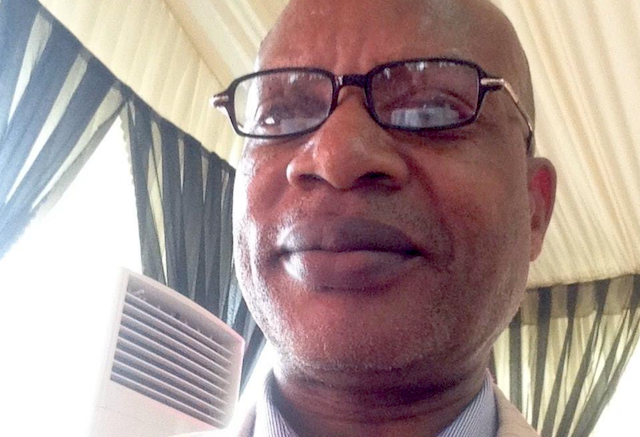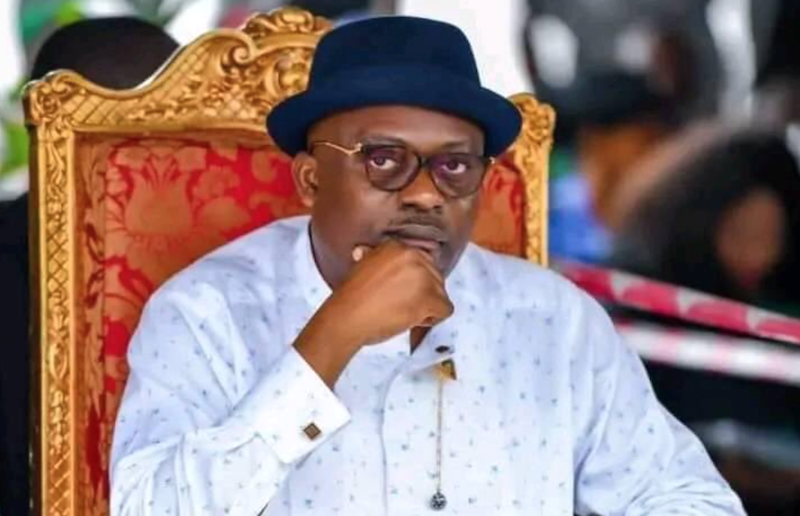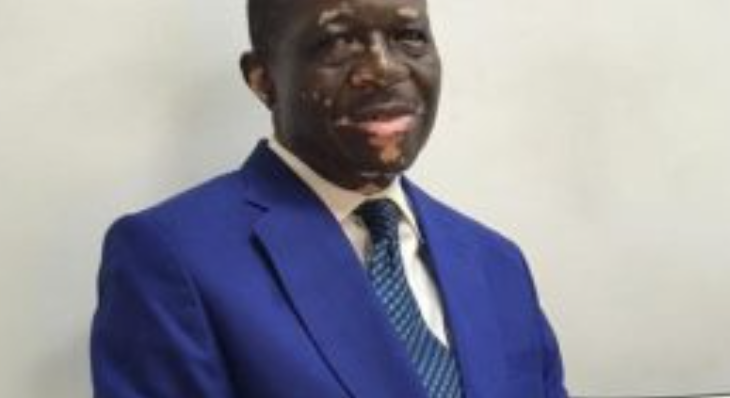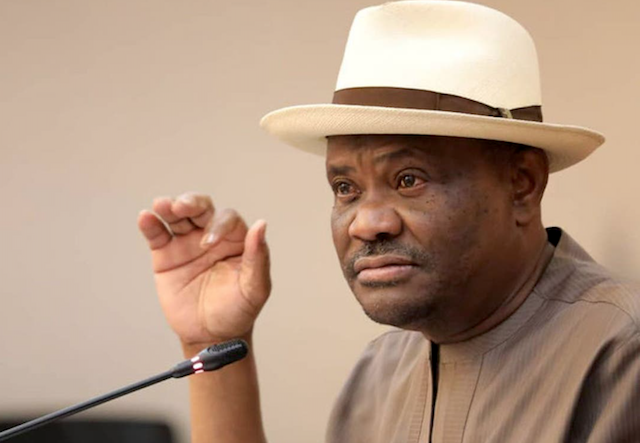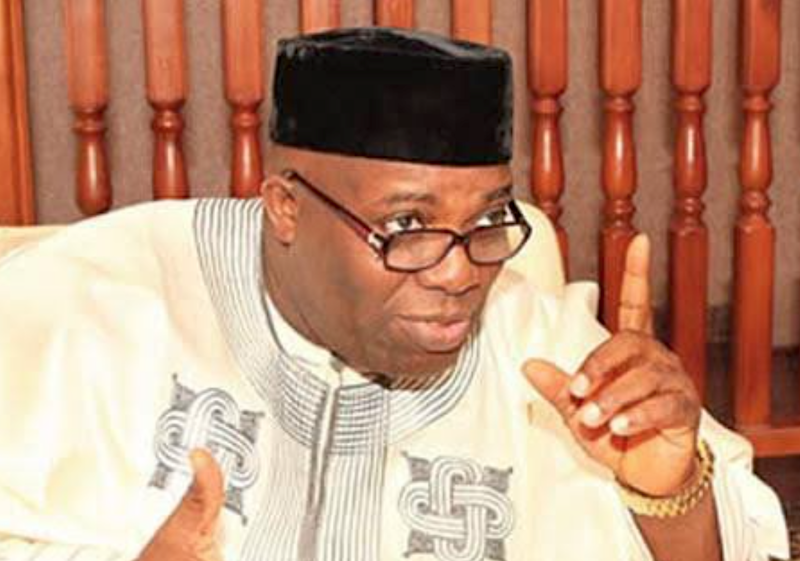Following the bloody and destructive confrontations, aftermath of the October 5, 2024, heated and contentious local government council election in Rivers State, President BolaTinubu “called on Governor Siminalayi Fubara, political leaders and their supporters in Rivers State to exercise restraint and uphold the rule of law.”
However, an exasperated Fubara quickly took issue with the president’s plea for peace, expressing concern that Tinubu singled him out for mentioning in the poll’s skirmishes between the warring camps of Fubara and his predecessor and Minister of the Federal Capital Territory (FCT), Chief Nyesom Wike.
Perhaps in response to calls for his intervention in the yearlong Rivers crisis that’s defied his earlier peace overture – and boiled over on October 7, resulting in several deaths and destruction of public infrastructure across Rivers local government areas – Tinubu, via a statement by presidential spokesman Bayo Onanuga on October 7, urged armistice among the political gladiators and their supporters.
The statement reads in part: “In response to recent tensions following last Saturday’s local government council election, the President expressed deep concern over reports of arson and explosions in the state. He urged all political actors to de-escalate the situation and discourage their supporters from engaging in violence or destructive actions.
“President Tinubu directed the police to restore and maintain peace, law, and order immediately. While instructing law enforcement agencies to bring the situation under control, he emphasised the need to ensure the security of public institutions. President Tinubu said government facilities built with public funds must be safeguarded from vandalism.
“He stressed that self-help has no place in a democratic system, especially after 25 years of continuous democracy. According to President Tinubu, the judiciary can settle all political disputes, and the outcome of this election should be no exception.”
But an obviously untrusting Fubara questioned the president’s rationale for mentioning his name alone. As a guest on Channels Television’s ‘Politics Today’ on the same day, Fubara said, “I do not have any issue with it (the president’s intervention) but I am a bit concerned when my name was only mentioned” (while Wike’s name was left out).
Fubara added: “The issue (political crisis) is very simple. It’s as simple as ABC. Everyone in Nigeria, everyone in Rivers State, knows where this issue is coming from. It’s not rocket science. We know what the issue is and the issue is not Fubara, it is not.”
Fubara’s knee-jeck reaction – a pattern seen since the supremacy battle between him and Wike – shows a lack of grounding in political nuances. Otherwise, he would’ve realised that President Tinubu’s message was clearly in his favour: He endorsed the conduct of the council poll, by asking aggrieved parties – who didn’t want the election to hold – to go to court for redress.
Besides, Tinubu tactically recognised Fubara as the political leader in Rivers, and thus the onus on the governor to be in a better – if not the best – position to settle the rift between him and Wike, and the Rivers crisis. (How Fubara will do that is for another day.) That’s why Tinubu mentioned only Fubara’s name in his message of appeal for peace in Rivers.
But Fubara misconstrued Tinubu’s intention, and, as usual, blamed Wike for the Rivers crisis, and hence the burden on Wike to resolve it. That’s why Fubara rhetoricically asked on the television programme, “Why is the case of Rivers State different? Why is the law or Constitution of the Federal Republic of Nigeria interpreted in a different way when it comes to Rivers State?”
Who but Fubara, as the Governor and Chief Executive of Rivers State, can provide answers to these posers? Doesn’t he realise that the Rivers’ case is different because he hasn’t come out with the truth about how and where he and Wike “hid the hoes” with which they weeded the Rivers political terrain during the 2023 General Election cycle? And doesn’t Fubara know he hasn’t been interpreting the Law or the Constitution according to the spirit and letter of the grundnorm?
If the contrary were the case, Fubara shouldn’t have declared that, “I’m aware that RSIEC (Rivers State Independent Electoral Commission) told me they already had an order (of court) mandating them to conduct the (council) election on the 5th of October, 2024, and the security agencies to support them.”
He added: “So, I think with that order, the election will be held. I might not be a lawyer but I know there is something they call ‘first-in-hand’ (court order), and since they (RSIEC) have the first-in-hand, we will give them all the necessary support for that election to be conducted… And is there any other court unknown to me that is bigger than the Supreme Court of Nigeria, whose judgment concerning a proper constitution of elected Local Government Councils is being obeyed (by the government and RSIEC) in Rivers State?”
This’s the faulty premise upon which Governor Fubara based the conduct of the council election on October 5, indicating that he isn’t just a layman regarding the law, but one intent on subverting the rule of law, to satisfy his political aspiration.
The law and the Practice Directions of Courts are clear on the parameters to be applied by the judiciary to solving legal issues. They’re:
1) Courts of coordinate jurisdiction are equal, one is not superior to the other; and the pronouncements of one court can’t override the other court’s rulings.
2) All courts judgments must be obeyed, but the latest ruling take precedence over prior order of a court of coordinate jurisdictionon on the same issue(s) for determination.
3) The pronouncements by the Supreme Court supercede all opinions of the lower courts, viz., the Appeal Court and the High Courts at the federal and state levels.
Seeming unversed in these rules, Fubara stated that: “However, the Rivers State Government and RSIEC itself also had a judgment that states clearly: Conduct the election with the voters’ register of 2023; and Police, DSS, Nigeria Army and other sister agencies should provide security. I might not be a lawyer, but I understand clearly that when it comes to the issue of judgment, there is something they call ‘first-in-time.’”
Actually, when it comes to which to apply between pronouncements by courts of equal status, there’s also what’s called, “latest-in-time” – meaning the latest court order(s) should apply. In that instance, the judgment of the Abuja Federal High Court – being the latest on the issues – should supercede the orders of the Rivers High Court on the conduct of the council election, and be obeyed by all parties, pending any application or appeal to set it aside.
Fubara’s right for asking, “And is there any other court unknown to me that is bigger than the Supreme Court of Nigeria, whose judgment concerning a proper constitution of elected Local Government Councils is being obeyed in Rivers State?”
There’s no other court “bigger” (higher) than the Supreme Court, which’s the final arbiter in legal matters in Nigeria. But although the Supreme Court mandated the 36 States, including Rivers, to conduct council elections within 90 days (three months), to ensure a “democratically-elected local government system,” the apex court didn’t ask the Rivers government to circumvent an aspect of the process of the election, which’s the lacuna that the Abuja Federal High Court ordered the RSIEC and the Rivers government to rectify before they proceeded with the poll.
Why did the Rivers government choose to adopt shortcuts to organising the council election? It’s unhelpful citing the exigency of the Supreme Court order to conduct the poll within 90 days. What about other states that’ve fixed their council elections beyond the 90 days ordered by the Supreme Court, and as sanctioned by President Tinubu in an agreement with state governors to conduct the ballots within the timeframe?
Below is a schedule of dates for local government elections in many states: Akwa Ibom, October 5; Rivers, October 5; Jigawa October 5; Benue, October 5; Plateau, October 9; Kogi, October 19; Kaduna, October 19; Kano, October 26; Cross River, October 26; Nasarawa, November 2; Abia, November 2; Ogun, November 16; Ondo, January 18, 2025; Katsina, February 15, 2025; and Osun, February 22, 2025.
Will some of these states be in breach of the Supreme Court order, and the agreement with Tinubu simply for conducting the council election outside the timeframe? Certainly not, as they’d scheduled the elections prior to the July 2024 Supreme Court and President Tinubu’s intervention in the matter of financial autonomy for Local Governments!
Governor Fubara knew why he insisted on conducting the council poll – even when the RSIEC breached the provisions of the Rivers State law guiding the election, which prescribes a 90-day advance notice to political parties participating in the franchise. Fubara’s undisguised aim was – and is – to wrest the political structure of the PDP, from which the Wike faction declined to participate in the election until the issues it took to court were resolved and respected by the Rivers government.
The question is: What would it’ve caused the Rivers government and RSIEC – in obedience to the Abuja court order – to postpone the election, and give adequate and appropriate notice to the parties before its conduct? One and only crucial thing: Governor Fubara wasn’t sure that he could snatch the political structure from Wike if the Minister’s camp were to participate in the election!
While it filed a stay of execution and appeal yet to be considered, the Rivers government rejected the Abuja court judgment, and conducted the election won by the Action Peoples Party (APP) – reportedly backed by Fubara as the platform to ply his reelection bid in 2027. That’s been the gameplan, and it’s what the unending Rivers crisis is about!
The probable obstacles to Fubara reaching and achieving that goal are the series of court cases flying between Rivers and Abuja on the Rivers crisis, and the possibility of a faction of the All Progressives Congress (APC) joining the remnants of the PDP to form a bloc under Wike’s headship. Otherwise, Fubara’s home and dry for his 2027 reelection with the feat his government has attained with the council poll!
Mr Ezomon, Journalist and Media Consultant, writes from Lagos, Nigeria.
